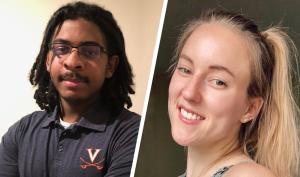
Soon after Lake Pontchartrain flooded New Orleans in Hurricane Katrina, Kathryn "Kay" Neeley began using social justice case studies in the classes she teaches at the University of Virginia School of Engineering and Applied Science.
“Like COVID-19, Katrina revealed existing injustices, including what we now call structural racism. At the time, we talked about ‘environmental racism,’” Neeley, an associate professor of science, technology and society in the Department of Engineering and Society, said.
These days, Neeley spends a lot more time in classes on the ways in which engineering helps or hurts groups of people. So do her department colleagues. Social justice concepts in engineering, at one time implicit in science, technology and society’s ethics teachings, are now explicit throughout the curriculum.
Every UVA Engineering student’s initial introduction to the social and ethical aspects of engineering practice is STS 1500, Designing for a Sustainable World. The first thing they learn is that when engineers design and build technologies, they build societies, said Benjamin Laugelli, an assistant professor in the department.
Two years ago, Laugelli restructured the course, which he co-teaches with W. Bernard Carlson, Joseph L. Vaughan Professor of Humanities, around the United Nations Sustainable Development Goals. In 2015, UN member states agreed to 17 objectives as part of a global action plan to end poverty, protect the planet, promote prosperity and ensure peace for all.
“Because the UN uses a broad concept of sustainability, this gets the projects more squarely in the science, technology and society space,” Laugelli said. “The goals address environmental and economic sustainability, but they also address social sustainability, and that’s where social justice comes in. Reduced inequality is one goal, gender equality is one, good health and wellbeing is one, along with the resources to provide those things to all kinds of people.”
For the culminating assignment, students write a patent application in response to a request for proposal seeking ideas for a technological innovation that could help the UVA community make progress toward one or more of the UN goals. The task requires students to integrate skills and concepts taught throughout the semester.

